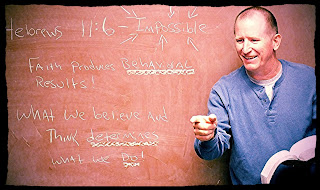 |
| Mike Hosey, An Elder |
The Bible has a few stories for which we aren’t given much information. We are left to our own speculations about what they mean. Unfortunately, this can be dangerous if we miss the larger point of the story. One of those stories is found in Jude 1:9 where Michael, the only named Archangel in scripture, disputes with Satan over the body of Moses. Jude doesn’t tell us what the two were disputing about, and we simply have no good ideas from established scripture. Jude appears to be referencing an apocryphal book called the Assumption of Moses, or the Testament of Moses. That book is no longer extant, and our only strong knowledge of it’s similarity to Jude’s claim is from an early church theologian named Origen. He lived in the second century AD, and commented on Jude’s possible use of that book.
The best explanation of the reason for the argument is pure speculation, but does have some credible weight. Moses was buried by God himself outside of the promised land, and the location of that burial was kept secret (Deuteronomy 34:5-6). People who think about such things contend that God wanted it kept secret so that the Hebrews would not worship Moses by paying undue homage to his burial site. People have a tendency to focus their worship on things that don’t deserve it, and Moses had been an extremely important figure in the development of Hebrew culture. This would have made him a prime object for reverence. Satan would have wanted the burial location information known so that he could further corrupt the devotion of the Hebrew people toward the only true God. Perhaps Michael disputed with Satan over that location. In yet another possible explanation, Satan the accuser, wanted the body of Moses because Moses had been a sinner and a murderer. In essence, Satan believed he had right to it since the redemptive work of Christ had not yet happened. Michael then debates with Satan in order to nullify that claim.
But Jude’s purpose wasn’t to give us details about that event. His purpose was to show how false teachers were walking on shaky ground when they defied proper authority and scoffed at supernatural beings He was pointing out how the chief of the angels, Michael, did not directly accuse Satan, but instead deferred to the authority of Jesus. The false teachers were less than Michael and were rushing in to places where Angels did not tread!
Jude’s point is that you don’t have the authority or power to address demons directly, but that God does. In such instances we are better off relying on God’s word, and on the name and authority of Jesus.
